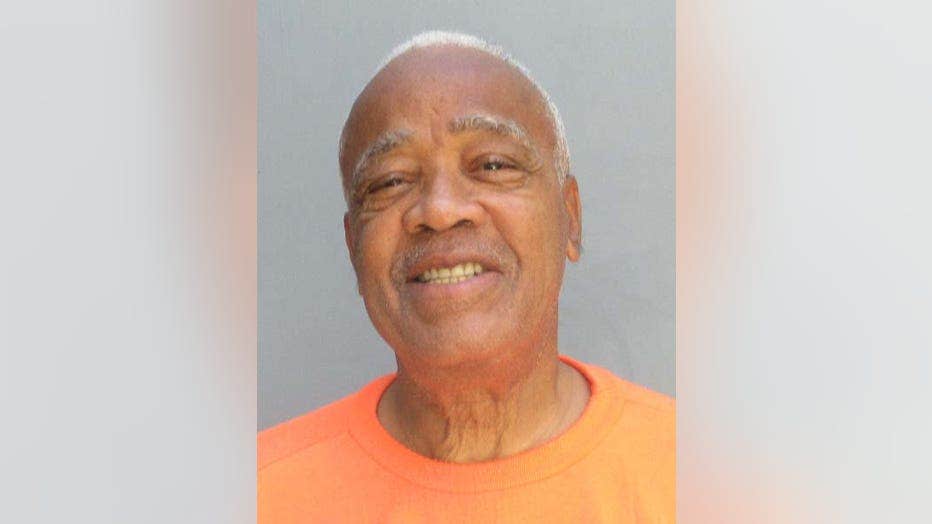Murray Hooper: Arizona prisoner to die by lethal injection, not gas chamber

Murray Hooper: Arizona prisoner to die by lethal injection
An Arizona prisoner who is scheduled to be executed in three weeks for two 1980 killings will be put to death by lethal injection.
PHOENIX - An Arizona prisoner who is scheduled to be executed in three weeks for two 1980 killings will be put to death by lethal injection, making him the third condemned person to decline lethal gas since the state refurbished the chamber where it carried out the last U.S. execution by gas more than 20 years ago.
Attorneys for Murray Hooper said on Oct. 26 that he declined to pick a method of execution when corrections officials asked him if he wanted to die by lethal injection or the gas chamber. Lethal injection is Arizona’s default execution method when condemned prisoners refuse to make a selection.
His lawyers declined to comment on the method by which he would be executed on Nov. 16 for the killings of William "Pat" Redmond and Redmond’s mother-in-law, Helen Phelps.
The last lethal gas execution in the United States was carried out in 1999 in Arizona. The state’s gas chamber at the prison in Florence, southeast of Phoenix, was dormant as Arizona started using lethal injection.
Corrections officials have declined to say why they refurbished the gas chamber and purchased materials to make hydrogen cyanide gas, which was used in some past U.S. executions and at Nazi concentration camps during World War II.
Death penalty experts say the United States switched to lethal injection due to the horrific nature of gas executions, which they say are slow and leave the condemned gasping for breath and thrashing in their restraints while appearing to be in excruciating pain.
Arizona, California, Missouri and Wyoming are the only states with old gas execution laws still on the books. Arizona is the only one that still has a working gas chamber.
Deborah Denno, a Fordham Law School professor who has studied executions for more 25 years, said it’s not unusual for death row prisoners to refuse to complete method-of-execution forms, as condemned people who are depressed and resigned aren’t likely to be focused on how they will be put to death.
"This is not foremost in their minds in the way it may seem to someone not in their position," Denno said.
Authorities say Redmond and Phelps were killed after Hooper and two other men forced their way into Redmond’s home on Dec. 31, 1980. Redmond’s wife, Marilyn, was shot in the head but survived and testified against Hooper.
Lawyers for Hooper say he is innocent and was in Chicago at the time of the killings.

Murray Hooper (Arizona Dept. of Corrections)
Two other men, William Bracy and Edward McCall, were convicted in the killings but died before their executions could be carried out.
Authorities say Robert Cruz, who was alleged to have had ties to organized crime, hired Hooper, Bracy and McCall to kill Pat Redmond, who co-owned a printing business. They said Cruz wanted to take over the business and was unhappy that Redmond had rejected his offers to enter several printing contracts with Las Vegas hotels, according to court records. In 1995, Cruz was acquitted of murder charges in both deaths.
Hooper would be the third Arizona prisoner put to death since the state resumed carrying out executions in May following a nearly eight-year hiatus attributed to the difficulty of obtaining lethal injection drugs and criticism that a 2014 execution was botched.
MORE: Murray Hooper: Death-row inmate’s failed testing bid keeps Arizona execution on track
In recent years, Oklahoma, Mississippi and Alabama have passed laws allowing executions with nitrogen gas, at least in some circumstances, though experts say it has never been done and no state has established a protocol that would allow it, according to the Death Penalty Information Center.
The last prisoner to be executed in a U.S. gas chamber was Walter LaGrand, the second of two German brothers sentenced to death for killing a bank manager in 1982 in southern Arizona. It took LaGrand 18 minutes to die.
Arizona’s gas chamber refurbishment was condemned internationally, including coverage in Israel and Germany drawing parallels to Holocaust atrocities.
There are 111 prisoners on Arizona’s death row and 22 have exhausted their appeals, according to the state attorney general’s office.
Previous reports

Murray Hooper: Death-row inmate’s failed testing bid keeps Arizona execution on track
An execution planned next month for an Arizona prisoner remains on track after a judge rejected the condemned man’s request to have fingerprint and DNA tests conducted on evidence from the two 1980 killings for which he’s scheduled to be put to death.

Arizona Supreme Court allows execution of death-row inmate Murray Hooper to proceed
Murray Hooper and two co-defendants were sentenced to death for the New Year?s Eve 1980 murders of a Phoenix man and his mother-in-law during a home robbery.

Murray Hooper: Arizona death row inmate may face execution
The Arizona Supreme Court says an execution warrant for death row inmate Murray Hooper could be issued in less than two months.

